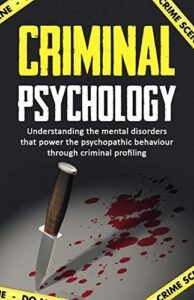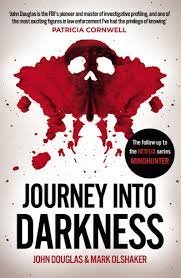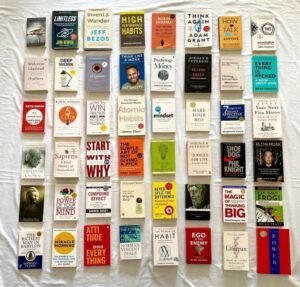Books on criminal psychology give readers a sense of understanding of crime, motives, and the mind of a criminal. Criminal psychology, also recognized as forensic psychology, stands as a captivating and intricate field nestled at the intersection of psychology and criminology. It is a specialized discipline that endeavors to unravel the intricate web of human behavior entwined with criminal activities. At its core, criminal psychology seeks to provide profound insights into the motives, thoughts, and actions of individuals ensnared in illegal pursuits, thereby contributing valuable knowledge to law enforcement, legal proceedings, and the broader comprehension of crime.
Criminal profiling is a crucial component of criminal psychology. This means that in-depth descriptions of possible offenders must be painstakingly crafted using a combination of behavioral patterns, crime scene analysis, and other relevant factors. The goal is to provide law enforcement with sophisticated insights about the likely traits and motivations of offenders, therefore assisting them in their investigations. Criminal psychologists gain expertise in identifying the distinct psychological imprints that criminals may leave behind through this discipline.
Another essential aspect of criminal psychology is comprehending the complex web of intents and motivations that push people to commit crimes. This investigation covers a wide range of topics, from psychological diseases and personal grievances to the more general effects of cultural norms and systems. Criminal psychologists contribute to a better understanding of the complexities of the human psyche to criminality by interpreting the complex motivations underlying criminal behavior.
A fundamental component of criminal psychology is psychological assessment, which involves determining the mental health of people involved in criminal proceedings. This includes a wide range of factors, including assessments of mental health, determinations of a defendant’s capacity to stand trial, and investigations into the existence of psychiatric conditions that could affect court cases. The information obtained from these evaluations is crucial in making sure that the legal system takes into account the complex mental health issues of individuals who are charged with crimes.
Another area of study for criminal psychologists is witness testimony and the brittleness of memory following criminal incidents. These experts investigate the validity of witness testimony to examine the effects of psychosocial variables, stress, and trauma on memory recall. This endeavor serves the dual purposes of verifying the veracity of information supplied during investigations and emphasizing the intricate relationship between perception and memory within the framework of criminal incidents.
Criminal psychologists are essential in developing and executing treatment and rehabilitation plans for criminals, in addition to supporting judicial processes. This aspect of their work is based on the knowledge that promoting rehabilitation and lowering the risk of recidivism requires addressing the psychological elements influencing criminal behavior.
Another essential task for criminal psychologists is risk assessment. These experts assess the likelihood that a person will commit new crimes, which gives important information for parole decisions and other release-related decisions. This proactive strategy emphasizes how criminal psychology influences choices and policies that broadly affect public safety.
Criminal psychology is a field that extends beyond academics and legal applications. By looking at patterns of criminality across a range of groups, it broadens its understanding of aberrant behavior. This broad investigation enhances the scholarly terrain of both psychology and criminology by advancing a thorough understanding of the elements that distinguish criminal behavior from socially acceptable behavior.

Criminal psychologists frequently testify as expert witnesses in court, using their knowledge to help the judge grasp the psychological aspects of a case. These experts fill in the gaps between psychological knowledge and legal interpretation by providing insights into the mental condition of an accused person or evaluating the psychological effects of particular events on their behavior.
To put it simply, criminal psychology is a broad field that is essential to the mutually beneficial interaction that exists between psychology and the criminal justice system. It provides a prism through which to examine the complexities of the human psyche concerning criminal behavior, acting as a useful tool and scientific endeavor to deepen our knowledge of crime and its perpetrators. This field’s dynamic and ever-evolving character highlights its importance in the continuous effort to solve the enigmas surrounding criminal psychology.
Read Also: Highest Paid Doctors in the World with Salary Figures 2024
10 Best Books on Criminal Psychology

- John E. Douglas and Mark Olshaker’s book “Mindhunter: Inside the FBI’s Elite Serial Crime Unit” offers insights into criminal profiling. This book explores the experiences of a former FBI agent and his work on some of the most notorious criminal cases.
- John E. Douglas and Mark Olshaker’s book “The Anatomy of Motive: The FBI’s Legendary Mindhunter Explores the Key to Understanding and Catching Violent Criminals”: Douglas delves into the motives behind criminal behavior, providing a compelling exploration of the psychology behind criminal actions.
- “Without Conscience: The Disturbing World of the Psychopaths among Us” by Robert D. Hare: Hare, a leading expert on psychopathy, explores the characteristics and behaviors of psychopaths, shedding light on their impact on society.
- Kent A. Kiehl’s book “The Psychopath Whisperer: The Science of Those Without Conscience”: Kiehl, a clinical psychologist, offers a captivating look at his experiences studying psychopathy, providing insights into the minds of individuals without a conscience.
- “The Stranger Beside Me” by Ann Rule: Rule’s gripping true crime narrative explores her relationship with serial killer Ted Bundy, offering a unique perspective on criminal psychology.
- “Journey into Darkness” by John E. Douglas and Mark Olshaker: Douglas, a renowned FBI profiler, provides an in-depth exploration of criminal profiling techniques and the psychology behind violent crimes.
- “The Cases That Haunt Us” by John E. Douglas and Mark Olshaker: Douglas examines historical criminal cases, discussing the psychological aspects that make them enduring mysteries.
- “The Gift of Fear: Survival Signals That Protect Us from Violence” by Gavin de Becker: De Becker explores the innate instincts that help individuals recognize and respond to potential danger, providing valuable insights into personal safety.
- “Serial Killers: The Method and Madness of Monsters” by Peter Vronsky: Vronsky delves into the history and psychology of serial killers, offering a comprehensive exploration of their motives and methods.
- “In Cold Blood” by Truman Capote: A groundbreaking work of true crime, Capote’s narrative explores the brutal murder of a Kansas family, providing a chilling examination of criminal psychology.
Read Also: Is Nitro Scholarship Legit – Find Out Now
Readers can access books on criminal psychology through various channels, providing flexibility and convenience in obtaining valuable resources in this field.

Here are several ways readers can access books on criminal psychology:
- Local Libraries: Visit your local library to explore their collection of books on criminal psychology. Many libraries offer physical copies and digital resources, providing free access to a wide range of titles.
- Bookstores: Traditional bookstores and online retailers offer a vast selection of books on criminal psychology. Readers can purchase physical copies or opt for e-books, providing instant access to the content.
- Online Retailers: Explore online platforms such as Amazon, Barnes & Noble, or independent bookstores’ websites to purchase both physical and digital copies of books on criminal psychology. E-books and audiobooks offer convenient options for digital readers.
- E-book Platforms: Utilize e-book platforms like Kindle, Apple Books, Google Play Books, or Nook to access digital versions of books on criminal psychology. These platforms often provide a wide selection and the convenience of reading on various devices.
Read Also: 10 Sites To Read Free Books Online Without Downloading
- Educational Institutions: If you are a student or affiliated with an educational institution, check with your library or resource center. Many academic institutions provide access to a wealth of resources, including books on criminal psychology.
Benefits of Books on Criminal Psychology to Readers
- Insights into Criminal Minds: Books on criminal psychology provide readers with valuable insights into the minds of criminals. Through case studies, analyses, and firsthand experiences, readers gain a deeper understanding of the motives, behaviors, and psychological factors that drive individuals to commit criminal acts.
- Enhanced Critical Thinking: Engaging with books on criminal psychology stimulates critical thinking. Readers are encouraged to analyze complex scenarios, consider multiple perspectives, and evaluate the psychological nuances involved in criminal behavior. This enhanced critical thinking can be applied not only to understanding crime but also to various aspects of daily life.
- Practical Applications in Legal Settings: The knowledge gained from books on criminal psychology has practical applications in legal settings. Legal professionals, law enforcement officers, and those involved in criminal justice can leverage these insights for criminal profiling, understanding witness testimonies, and assessing the mental states of individuals involved in legal cases.
- Crime Prevention and Public Awareness: Increased awareness of criminal psychology, derived from reading books on the subject, contributes to crime prevention efforts. Understanding the psychological factors that may lead to criminal behavior enables communities to implement preventive measures and fosters public awareness regarding personal safety.
- Professional Development Opportunities: For individuals pursuing careers in psychology, criminology, law enforcement, or related fields, books on criminal psychology serve as valuable resources. They provide foundational knowledge, case studies, and theoretical frameworks that contribute to professional development, enhancing the skills and expertise required for roles such as criminal profiling, forensic psychology, and legal consultation.
In a nutshell, readers can gain a great deal from reading works on criminal psychology, from a better knowledge of the thoughts of criminals to useful applications in legal settings. These materials not only improve individual knowledge but also advance the welfare of society by improving crime prevention strategies and advancing the careers of those in related industries.
Conclusion
Conclusively, reading works on criminal psychology offers an insightful exploration of the complexities of the human psyche about criminal behavior. These books are an excellent source of knowledge for learning more about the psychology, motivations, and behaviors of criminal minds.
In addition to enhancing one’s knowledge, they foster critical thinking, have real-world applications in the legal field, lessen crime, and present chances for professional advancement. Reading about criminal psychology in literature helps us understand crime better and gives people the skills they need to deal with and understand the many parts of the criminal justice system.
